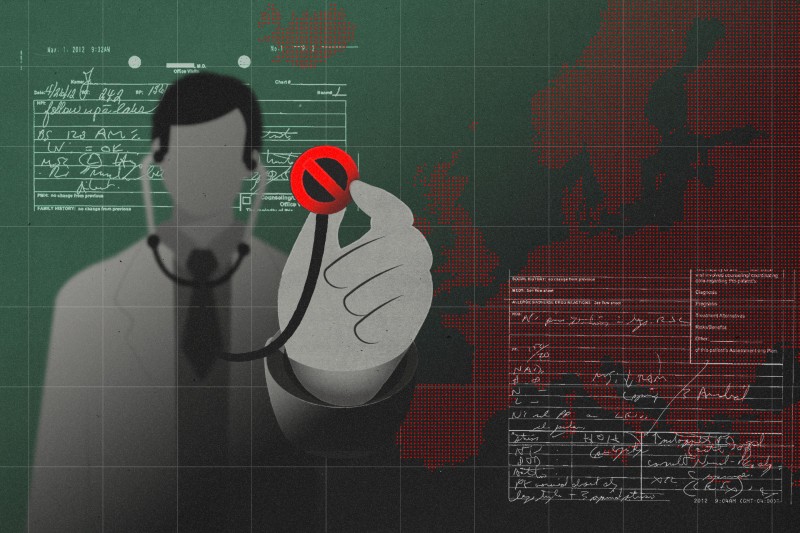A lawyer representing Pothen said the doctor “extends his sympathy” to the family, but that “the deceased was not autopsied, and therefore there are no factual findings regarding the cause of death.”
He added that his bans in the U.K. and the Netherlands had no impact on his license in Germany. The lawyer said Pothen had initially been unaware that he had been removed from the U.K. register and that he had not been involved in those proceedings.
Pothen had been on his first shift as an ear, nose and throat consultant at QMC, a teaching hospital within the U.K.’s public National Health System, when he examined Denise. He had been hired as a temporary consultant there after a stint working at UMC Utrecht hospital in the Netherlands.
During his time at UMC Utrecht, he had offered substandard care to four patients, including two who had subsequently died, according to a report from the Dutch inspectorate in April 2017. However, those incidents did not result in a ban against him at the time.
A Dutch inspectorate report noted that Pothen had informed his “foreign” employer about the investigation into him. But the U.K. medical tribunal that banned him in 2021 found he had not been fully honest, failing to mention he had been suspended by the Dutch hospital for seven months.
Pothen’s lawyer said the cases in the Netherlands had been reported and investigated, and had not resulted in professional consequences for him, adding that his suspension during that time was “purely routine.” He said that Pothen does not carry out surgical procedures in his current private practice in Germany and that there had been no cause for complaint since he started working there.
The lawyer also said Pothen had downplayed the Dutch investigation when applying for the Nottingham job due to personal circumstances at the time, and accepted that this had “jeopardized” his U.K. license.
Nottingham University Hospitals NHS Trust did not answer questions from OCCRP’s U.K. partner The Times about what measures it had taken to check with his previous employers about any concerns over his practice and why it had employed him at a time when he was under investigation in the Netherlands.
Pothen’s case also illustrates gaps in medical oversight, where disciplinary proceedings in one European country do not prevent a doctor from practicing in another and patients are left in the dark about their doctor’s record abroad.
Britain’s General Medical Council sent a notification to German regional authorities when Pothen’s license was revoked, but it is not clear whether the notification was received by the region in which he currently works.
In the anonymized IMI alert data sent to OCCRP by the European Commission, reporters found an alert had been sent by the Netherlands about a doctor being prohibited from practicing on the same date as Pothen’s license was revoked there in January 2022.
The Stuttgart Regional Council, the licensing authority responsible for Pothen, did not respond to detailed questions about whether it was aware of Pothen’s bans in the U.K. and Netherlands or how it had responded to that information. “Of course, we take your inquiry and the associated information, as well as all information we receive, seriously…However, we are not able to make any personal statements regarding professional reviews,” the council said.
For the Barnes family, the pain of Denise’s death still runs deep.
“At the end of the day, she would have and should have still been here,” Nicola said. “I don’t think he should be practicing anywhere, not in any country.”

